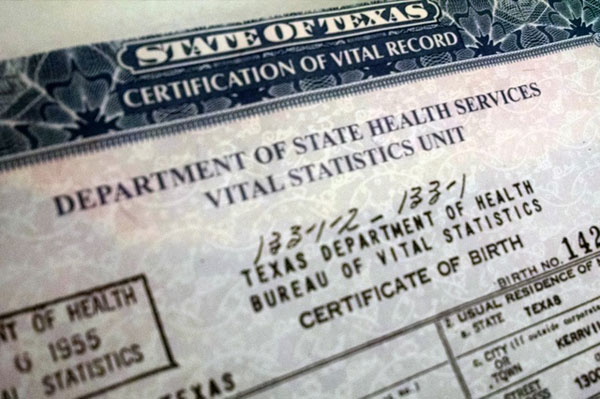- La Feria Community Holds Succesful Business Mixer Event
- Little Nashville to Take Place in Downtown Mercedes
- Lions Basketball Captures District Gold
- La Feria ISD Students Compete in Regional Chess Tournament
- Lions End First Half of 32-4A on a High Note
- La Feria ISD Held Another Successful Parent Conference
- Strong Appearance for Lions at Hidalgo Power Meet
- LFECHS Students Get to Meet Local Actress
- Students Participate in Marine Biology Camp
- Two LFECHS Students Qualify for All-State Band
Settlement Clears Immigrant Children’s Path to Birth Certificates
- Updated: August 5, 2016
by Mark Richardson
WESLACO, Texas – Undocumented immigrants with children born in the United States now can gather documents from an expanded list that should allow them to more easily obtain their children’s Texas birth certificates.
Public interest law groups reached an agreement late last week with the state to accept a wider range of identity documents. Children born on U.S. soil are in almost all cases granted American citizenship, regardless of their parents’ nationality.
Attorney Jennifer Harbury of Texas RioGrande Legal Aid said the settlement allows parents to move forward without fear.
“So, they should be able to get all of the paperwork together living up here, without going back through a horrifically dangerous journey to their home country just to get that document, and then see if they could ever get back up here,” she said. “That’s just not feasible.”

A federal lawsuit settlement should make it easier for undocumented immigrants to obtain a Texas birth certificate for their children born in the United States.
The lawsuit alleged that Texas effectively was denying the children’s constitutional rights by blocking their access to birth certificates. Under the agreement, Harbury said, immigrants from Mexico can use a voter ID card from that country, which can be mailed to them. Immigrants from Central America can use an identity card certified by their consulate. Officials also will accept a passport, but it must have a valid visa attached.
Harbury said it can be difficult for children without a birth certificate to enroll in school or receive government-funded health care. Part of the agreement, she said, requires Texas to produce pamphlets and posters to guide immigrants through the process and appoint a review officer to settle disputes.
“If someone is improperly denied a birth certificate, they can first go to customer services and see if it can be cleared up quickly,” she said. “And if not, they have the right to go to a review officer who will explain what they’re missing, or contact the local registrar office and ask for the situation to be remedied.”
State officials say they are in the process of issuing new guidelines for local registrars. The agreement will be monitored for nine months to ensure the state’s compliance, and Harbury said if problems arise, the lawsuit can be reinstated.


